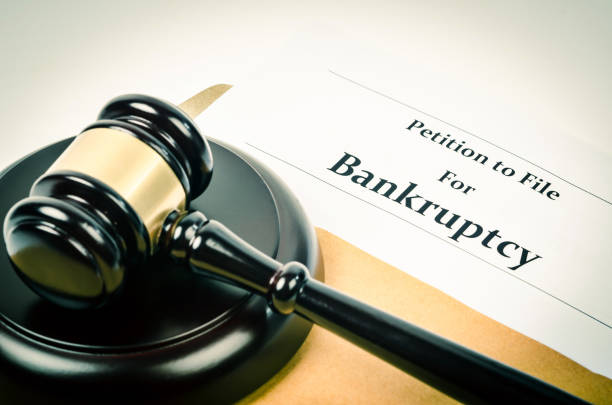Bankruptcy of individuals is a legal process in which an individual is declared unable to repay his debts. Let's consider in more detail the benefits to whom this process is suitable, its nuances, conclusions and prospects.
- Benefits of bankruptcy of individuals.
1. Exemption from debts:
• After the bankruptcy process is completed, a significant part of the debts can be written off, which allows the debtor to start his financial life "from a clean slate."
2. Protection from creditors:
• During the bankruptcy process, creditors cannot demand repayment of debts, seize property or take other enforcement actions.
3. Restoration of financial stability:
• The debtor gets the opportunity to restructure the balance of debts and establish real terms of their repayment.
Who is bankruptcy of individuals suitable for?
1. Persons with a high level of debt:
• Those who cannot repay their debts in full and on time.
2. Persons with low incomes:
• People whose income does not allow to satisfy the demands of creditors.
3. Failed entrepreneurs:
• Small business owners who could not cope with financial obligations.
Nuances of the process.
1. Judicial process:
• The bankruptcy procedure of an individual is a complex legal process that requires compliance with certain legal formalities.
2. Possibility of property loss:
• Often the debtor's property is sold for partial repayment of debts.
3. Duration of the process:
• The process can last from several months to several years depending on the complexity of the case and the amount of the debt.
4. Restrictions on further financial activity:
• After bankruptcy, a person may face difficulties in obtaining new credits or loans.
Conclusion.
1. Debt relief:
• Bankruptcy allows a person to free himself from overwhelming debts and start his financial life with a clean slate.
2.Legal and financial support:
• The procedure requires the involvement of qualified lawyers and financial consultants for successful completion.
Prospects.
1. Changes in legislation:
• Changes in legislation can simplify or complicate the bankruptcy process for individuals.
2. Social perception:
• Public perception of bankruptcy can change, which affects people's willingness to use the procedure.
3. Development of financial literacy institutes:
• Increasing financial literacy among the population can reduce the number of bankruptcy cases.
Bankruptcy Attorney / Bankruptcy Lawyers - Overall, personal bankruptcy is an important tool for those who find themselves in a difficult financial situation, but it requires careful approach and understanding of all its aspects.
Several key factors must be evaluated to determine whether bankruptcy is right for an individual. After that, you can take into account nuances related to marital status, property, agreements and other aspects that may affect the course of the procedure.
- Determining bankruptcy eligibility for an individual.
1. Debt level:
• If the debt exceeds the ability to repay it in the near future, bankruptcy may be a wise step.
2. Income and expenses:
• Analysis of income and expenses. If after covering necessary expenses (housing, food, medical expenses) there are no funds left to repay debts, bankruptcy may be an option.
3. Possibility of debt restructuring:
• Is it possible to agree with creditors on debt restructuring without declaring bankruptcy?
4. Other options:
• Have other options been used, such as consumer credit, loans from friends or family, or selling part of the property?
Nuances that should be taken into account.
1. Marital status:
• Joint property: If the debtor is married, it should be taken into account that joint property may be subject to distribution or sale to pay off debts.
• Alimony and Other Obligations: Current alimony or other family obligations cannot be discharged in bankruptcy and must continue to be fulfilled.
2. Property:
• Dwelling: If the dwelling is the only place of residence, it may be protected from sale (depending on the legislation of the specific country).
• Cars and other property: It is necessary to assess which property can be confiscated to pay debts and which is subject to protection.
3. Agreements:
• Long-Term Agreements: Analysis of agreements that may be invalidated or challenged if they were entered into shortly before the bankruptcy filing.
• Transfer of property: Transferring property to relatives or other persons before bankruptcy can be recognized as fraudulent and annulled by the court.
4.Other factors:
• Credit history: After bankruptcy, your credit history will be severely impaired, making it difficult to obtain loans in the future.
• Professional licenses: In some professions, bankruptcy can affect the ability to continue professional activities.
Bankruptcy procedure and discharge from debts.
1. Application submission:
• A bankruptcy petition is filed with the court along with a list of the debtor's assets, liabilities, and income.
2. Appointment of manager:
• The court appoints a manager who is responsible for managing the debtor's assets and ensuring the fulfillment of obligations.
3. Sale of property:
• The administrator can organize the sale of part of the debtor's property for partial repayment of debts.
4. Write-off of residual debts:
• After the process is completed, the court may decide to write off the remaining debts.
Bankruptcy Legal Assistance / bankruptcy of individuals legal services / Personal bankruptcy is a complex legal process that can be a lifeline for people in difficult financial situations. At the same time, it has its nuances and limitations, which must be carefully considered before starting the procedure. Contacting a qualified lawyer or financial consultant will help you make an informed decision and successfully go through the bankruptcy process.

































